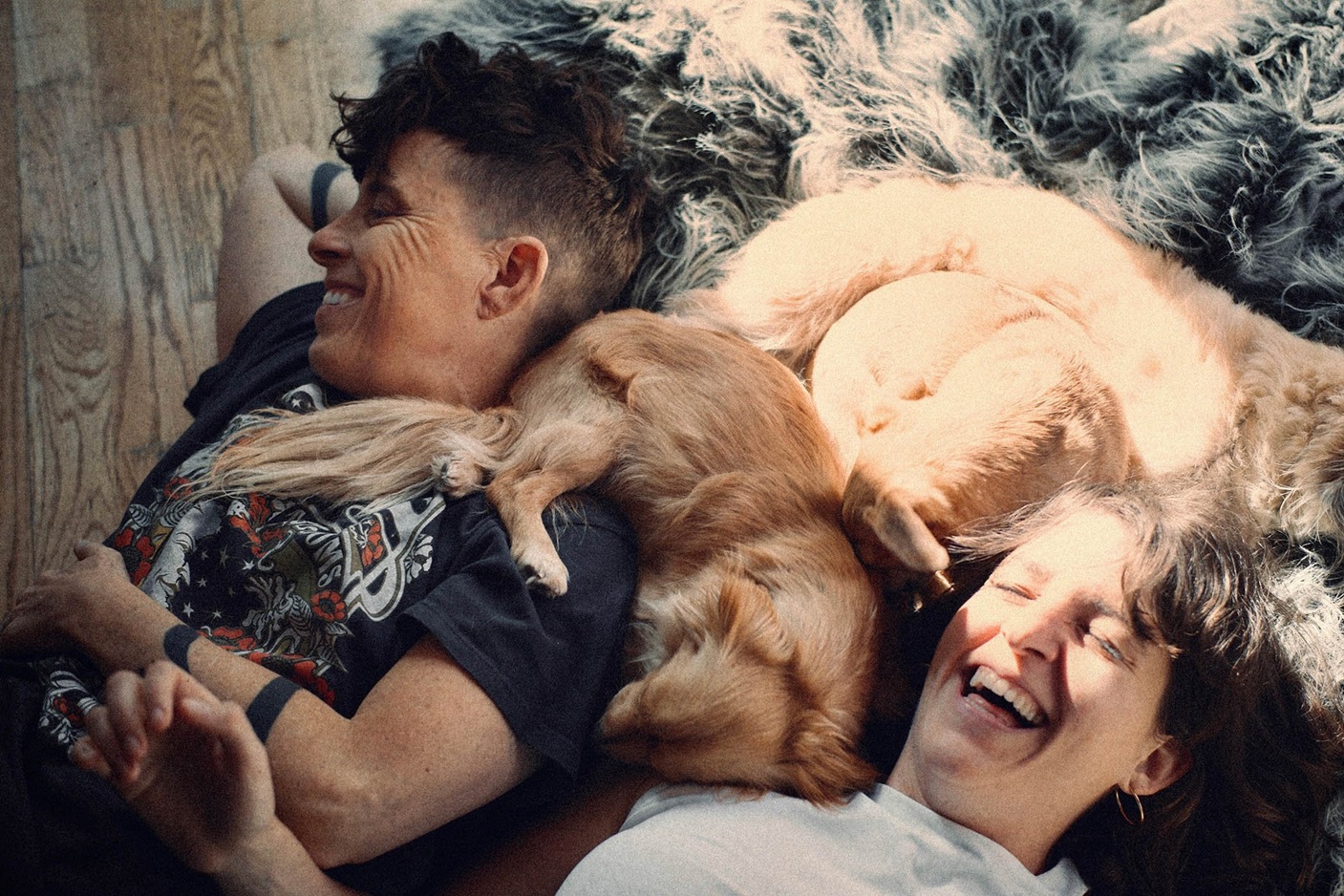
Three years into the poet Andrea Gibson’s treatment for ovarian cancer, Gibson and their wife, Megan Falley, were so committed to living in the face of death that the couple made no sense to the people around them. "We had tried as writers, and in some ways failed, to communicate with our close friends and family what a beautiful time we were having: that we were dancing through Andrea’s diagnosis, that we were singing more and laughing more, and more in love and happier than we had ever been in the six years prior in our relationship," Falley tells me. "It was almost like our friends didn’t believe us."
It was during this time that a close friend of the couple approached them with the idea of making a documentary about their experience, introducing them to the award-winning film-maker Ryan White, whose previous subjects included Pamela Anderson and the then 90-year-old Holocaust survivor turned celebrated sex therapist Dr Ruth Westheimer.
In 2023, White made the journey to rural Colorado with his producing partner Jessica Hargrave to meet the couple. Falley recalls after the pair pulled into the driveway, Gibson greeted them by saying: "I guess you’re going to be here with me when I die. Welcome to my home."
That mixture of dark humour and quick intimacy is the lifeblood of the documentary, Come See Me in the Good Light, which is streaming on Apple TV+ after its premiere at the Sundance Film Festival, where it won the festival favourite award.
When I spoke to Falley in October, she was back at the home she shared with Gibson. "It’s cosy to be home and among Andrea’s things," Falley says from their living room. On one wall is a neon light shaped into the words "Stay tender", which in the documentary feels like a flashing reminder.
The couple’s determination to stay tender — and to really live despite death looming — never wavers, even as we watch Gibson open their blood test results every three weeks and a number is put against the level of cancer in their body. As Gibson puts it in the wake of the diagnosis: "You don’t want to waste a second — and I was wasting a lot of seconds [before]."
Falley says their shared determination to hold on to gratitude and joy was partly her own innate way of seeing the world, but also an act of care.
"It would have been a terrible disservice I think, as a partner, to bring Andrea down in any way from that place that they were in."
In a poem of Gibson’s reflecting on their illness called Tincture, they write of how "the body prays / how it burns and begs for another average day". The documentary, which catalogues both extraordinary and very ordinary moments, is a record of so many of these supposedly average days. White only used a fraction of thousands of hours of footage over the course of a year; the unseen hours are a stockpile that gives Falley great comfort. "I know that I will see things that I don’t remember happening, which is such a privilege. Everybody loses people — not everybody gets to have thousands of hours of their love documented."
Come See Me in the Good Light does not end with Gibson’s death. Instead, they lived long past their initial two-year prognosis and were able to see the documentary with an audience. In July, they died at the age of 49, surrounded by friends and family.
But when the time came and the hospice nurses sedated Gibson, Falley hadn’t been aware that they would very quickly lose the ability to communicate. "That was really hard for me because I wanted a final conversation to ask: ‘How will you visit me?’," she says. "Within hours of feeling that, I got a love song recorded by our friend with lyrics that Andrea wrote about where to find them when they die. They didn’t have words left but I had this beautiful song."
Since Gibson died, Falley has adjusted to watching the documentary alone. "The first time I saw it without Andrea, earthside, let’s call it, I was just weeping the whole way through," she says.
"I wanted to reach through the screen and pluck them out of it. I had my rational mind that knew that wasn’t possible but there was also this body response where I felt like I could just reach out and they’d be here."
After the film ends, Falley says, is when the real alchemy happens as the politeness of small talk falls away. "Immediately, folks tell me about people they lost and they get to have a similar moment where somebody they maybe haven’t spoken about in some time gets to be born again into somebody’s consciousness," she says.
After a recent screening, Falley was approached by the writer Elizabeth Gilbert, whose memoir All the Way to the River recounts a similar experience of losing her partner to cancer and the bursts of joy, creativity and deep spirituality that showed up along the way as she held someone until their final breath.
"Liz said something really beautiful to me, which was: ‘I am so happy for you both’. I felt like she got something that, without experiencing a similar grief, would be hard to access." — The Observer














